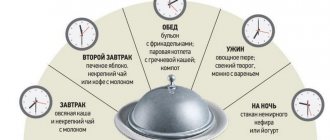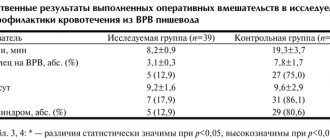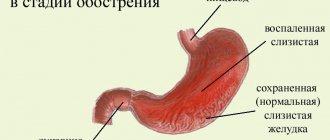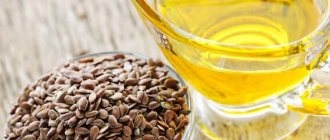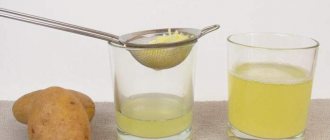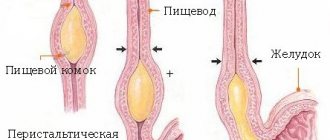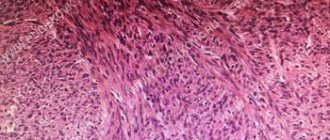Nocturnal hypersecretion of gastric juice is common in patients with diseases of the esophagus - gastroesophageal reflux disease (GERD) and Barrett's esophagus.
Nighttime symptoms of severe heartburn not only impair sleep quality and affect daily activities, but are also dangerous for patients due to prolonged contact of stomach acid with the esophageal mucosa, possible progression of the disease and even malignancy. Only adequate antisecretory treatment can stop the progression of the disease and prevent malignant neoplasms.
Features of the choice of drugs for the treatment of nocturnal hypersecretion of gastric juice
The content of the article
In the treatment of diseases associated with increased gastric acidity, antisecretory drugs—proton pump inhibitors (PPIs)—are widely used. They are effective for stomach and duodenal ulcers, GERD, and erosive esophagitis.
Mechanism of action of proton pump inhibitors
These diseases cause discomfort, can cause bleeding, lead to perforation of the walls, and predispose to cancer. But the effect of PPIs specifically on nocturnal hypersecretion of gastric juice is questionable. In addition, they have significant side effects, especially in older patients with chronic diseases and taking other medications.
A second option for antisecretory drugs that have also shown effectiveness in treating esophageal diseases are histamine 2 receptor antagonists (H2RAs). Moreover, their list of side effects and contraindications is shorter compared to PPIs, regardless of the severity of clinical symptoms, age of patients, concomitant diseases, or medications taken.
Heartburn with gastritis: which doctor should I contact?
A gastroenterologist specializes in the treatment of gastrointestinal diseases. If additional research is necessary, other specialized specialists may be involved. For consultation, examination and treatment, please call +7 (495) 775-73-60 or leave a request for feedback on the website with your contact details. The clinic is located at: Moscow, 2nd Tverskoy-Yamskoy lane, building 10, Mayakovskaya metro station. The following stations are also within walking distance: Belorusskaya, Tverskaya, Novoslobodskaya and Chekhovskaya.
Nocturnal hypersecretion of gastric juice - why is it dangerous?
GERD is the most common disease of the esophagus, accompanied by heartburn, including attacks at night. For example, according to surveys, in the United States, 7% of the total population suffers from heartburn every day, and 14% suffer from heartburn less than once a week.
Shaker's study found that nocturnal symptoms of heartburn occur in most adults with heartburn:
- 79% of respondents say they feel heartburn at night;
- 75% of them say their symptoms affect their sleep quality;
- 63% believe that heartburn negatively affects the quality of sleep;
- 40% of respondents indicate a negative impact of the symptom on activity.
Of the 791 respondents who suffered from heartburn, only 41% used antisecretory drugs, and in only 49% of patients the drugs were effective in relieving symptoms.
Proximal migration of acid is thought to predispose to symptoms of GREB at night. Therefore, pathology can lead to damage to the upper respiratory tract and the appearance of respiratory diseases - pharyngitis, laryngitis, chronic bronchitis, bronchial asthma, sinusitis, chronic cough, hoarseness.
Chronical bronchitis
Esophageal ulcers
Stomach acid can erode the lining of the esophagus, causing sores and ulcers. Esophageal ulcers are different from stomach ulcers, which are usually caused by bacteria. People with wounds and sores may spit up blood and may also vomit blood. They may see blood in their stool. The blood may be red, cherry red, or like coffee particles. In stool, blood from the esophagus and stomach usually turns black when passing through the small intestine, the color and appearance of oil - viscous, slippery, and difficult to wash off.
Contact your doctor immediately if you have these symptoms. Endoscopy can detect ulcers of the esophagus. Acid-blocking or acid-lowering medications may make them disappear.
Features of the treatment of GREB with nocturnal hypersecretion of gastric juice
GERD is treated with antisecretory drugs. In the presence of endoscopic signs of GERD, treatment is more effective than when diagnosing non-erosive GERD. In case of ineffective treatment of non-erosive GERD, it is necessary to consider whether the patient is taking medications properly, whether the dose and duration of treatment are sufficient.
If non-erosive GERD is not treated effectively, other conditions should be considered. Often found:
- Functional dyspepsia. With this pathology, antisecretory therapy can relieve symptoms, but not enough.
- Regurgitation in patients with atrial syndrome, which may be associated with impaired peristalsis or lower function of the esophagus.
- Aerophagia.
- Achalasia.
- Eosinophilic esophagitis.
After endoscopic confirmation of GERD, and if there is no therapeutic response, it is necessary to determine whether the patient is taking the drug or dose correctly and check the duration of use, since resistance to PPIs is rare. Resistance is possible mainly due to a genetic mutation in the cytochrome system.
Features of treatment of Barrett's esophagus with nocturnal hypersecretion of gastric juice
Barrett's esophagus is a critical condition because changes in the esophageal mucosa can progress to adenocarcinoma. Effective control of hypersecretion of gastric juice can stop the progression of the disease and prevent malignant neoplasms. Therefore, effective 24-hour gastric acid suppression is critical for this group of patients. Unfortunately, in patients with scleroderma and esophagitis, it is possible to control acidity only in 50% of cases.
Removing acid from the esophagus is a two-step process involving volume reduction and acid neutralization. During this process, most of the acid is removed from the esophagus during primary and secondary peristalsis, the influence of bicarbonates secreted by the salivary and submucosal glands of the esophagus.
Normally, acid clearance decreases during sleep. At night, swallowing practically stops, and therefore there is no stimulation of primary peristalsis. Due to the low food content in the stomach, secondary peristalsis is practically not stimulated.
Based on experimental studies, it is assumed that secondary peristalsis in patients with GERD and the elderly is not affected by the same conditions as in healthy people. Acid clearance of the esophagus in patients at night is worse than during the day, not only because of the supine position, but also because of the lack of swallowing and the reduced content of bicarbonate in saliva, which neutralizes acid.
Nocturnal acid secretion can be especially harmful due to prolonged contact of the acid with the mucous membrane. Nocturnal hypersecretion of gastric acid is common in patients with severe reflux effects such as erosive esophagitis and Barrett's esophagus.
Barrett's esophagus
The nocturnal symptoms of GERD are influenced not only by a decrease in peristaltic activity, but also by a violation of the lower pressure in the esophagus and increased sensitivity of the esophageal mucosa.
When monitoring pH daily in patients with symptoms of nocturnal reflux, the most common cause of problems was moderate acidity (pH 4-7), pepsin and bile in the reflux.
Development of inflammation in the esophagus (esophagitis)
In gastroesophageal reflux disease, food, acid, and digestive juices back up into the esophagus. Over time, this causes irritation and swelling of the mucous membrane lining the inside of the esophagus. This is esophagitis. If acid exposure in the esophagus is observed for just a few weeks, then inflammation of the mucous membrane can already develop. This can cause discomfort and even pain along the midline of the abdominal wall, “in the pit of the stomach,” where the right and left ribs meet at the sternum. This inflammation makes the esophagus vulnerable to even more dangerous conditions - erosions or scars.
Helicobacter pylor and night heartburn
Scientists have identified a connection between nocturnal hypersecretion of gastric juice and the presence of Helicobacter pylor (H. pylori) bacteria. Interestingly, antisecretory therapy without H. pylori treatment has been found to provide better control of gastric acid secretion. This may be due to nitrogen produced by H. pylori. This is one reason why the benefits and harms of eradicating this bacterium in patients with GERD are still so widely debated.
How to take medications correctly for hypersecretion of gastric juice
For hypersecretion of gastric juice, 2 groups of drugs are most often used: PPIs and H2RAs.
Proton pump inhibitors inhibit the enzyme H+K+-ATFase (acid pump), which stimulates food secretion, so drugs in this group are most effective when taken within 15-30 minutes before meals.
But they can only be suppressed by 70-80%. This is due to the fact that only a portion of the acid-secreting cells are activated by food intake. The remaining and newly formed pumps resume the secretion of gastric juice during fasting or until the next meal. It turns out that insufficient exposure to PPIs and lack of food at night contribute to the occurrence of night heartburn.
The pharmacological phenomenon of hypersecretion has been observed with the use of PPIs (omeprazole, lansoprazole, rabeprazole and pantoprazole) in both healthy individuals and patients with GERD. The time for heartburn to appear depends on the drug taken.
- When introducing PPI 1 r. / day in the morning, before breakfast, heartburn appears in the evening, around 23:00.
- When administering PPI 2 times/day. before breakfast and dinner, hypersecretion occurs 6-7 hours after the last dose of the inhibitor from 13:00 to 16:00.
The nocturnal increase in gastric acidity is not explained by hypergastrinemia.
A clinical trial to study the effective inhibition of nocturnal hypersecretion was conducted in Philadelphia in 1998. Subjects received omeprazole 20 mg twice daily with an additional nightly dose of omeprazole 20 mg, or ranitidine 150 mg, or ranitidine 300 mg, or placebo. Gastric pH was monitored overnight. Groups of patients were compared with each other.
Ranitidine was found to significantly reduce nocturnal gastric hypersecretion regardless of dose. However, the third dose of omeprazole did not significantly reduce nocturnal hypersecretion. This supports the hypothesis that histamine is responsible for acid hypersecretion. Because PPI only blocks activated proton pumps in the secretory ducts, and activation is greatly reduced at rest, its effect on gastric acid hypersecretion is less than during the day.
When H2RA is administered at night, effective reduction of heartburn can be expected. H2RA blocks H2 receptors in the parietal cells of the stomach, thereby suppressing basal gastric acid secretion.
The literature is mixed, but it is suggested that in patients without complete remission of acid-related symptoms, overnight H2RA supplementation may be effective in reducing acid hypersecretion.
Adequate antisecretory treatment is selected depending on the severity of symptoms, esophageal involvement and concomitant diseases, medications used and the age of the patient. In case of mild symptoms, the dose of PPI is 1 dose over 15-30 minutes. before breakfast. If nocturnal symptoms occur, an additional dose of ranitidine may be administered at night before breakfast and dinner. After increasing a single dose of PPI in the morning, gastric acid secretion is not inhibited for any longer than with a lower dose, so increasing the single dose in the morning to reduce symptoms of hyperacidity does not make sense. The third dose of PPI is ineffective because there is no stimulation of gastric acid secretion.
Try to change something in your evening habits
This is not such an easy task for those who come home late from work. However, here are some simple tips to consider on how to get rid of heartburn or prevent its occurrence:
Food : To give your digestive system time to process what you eat, try to finish eating three hours before bed. If this is not possible, try to eat small portions or consume easily digestible foods, such as lean fish, rice. Before going to bed, try to reduce your consumption of fatty and spicy foods, and give up baked goods and chocolate.
Drinks : Drink as little alcohol and caffeinated drinks as possible. In the evening, give up soda. Herbal teas and hot milk drinks will help you sleep peacefully.
Rest : After a hard, active day, try to relax. Take a hot bath, read a good book, or listen to calm music. This way you can take your mind off your daily worries and get ready for bed.
Prepare : If you do experience symptoms of heartburn or indigestion, make sure you have medications in your home medicine cabinet that can quickly relieve the discomfort.
